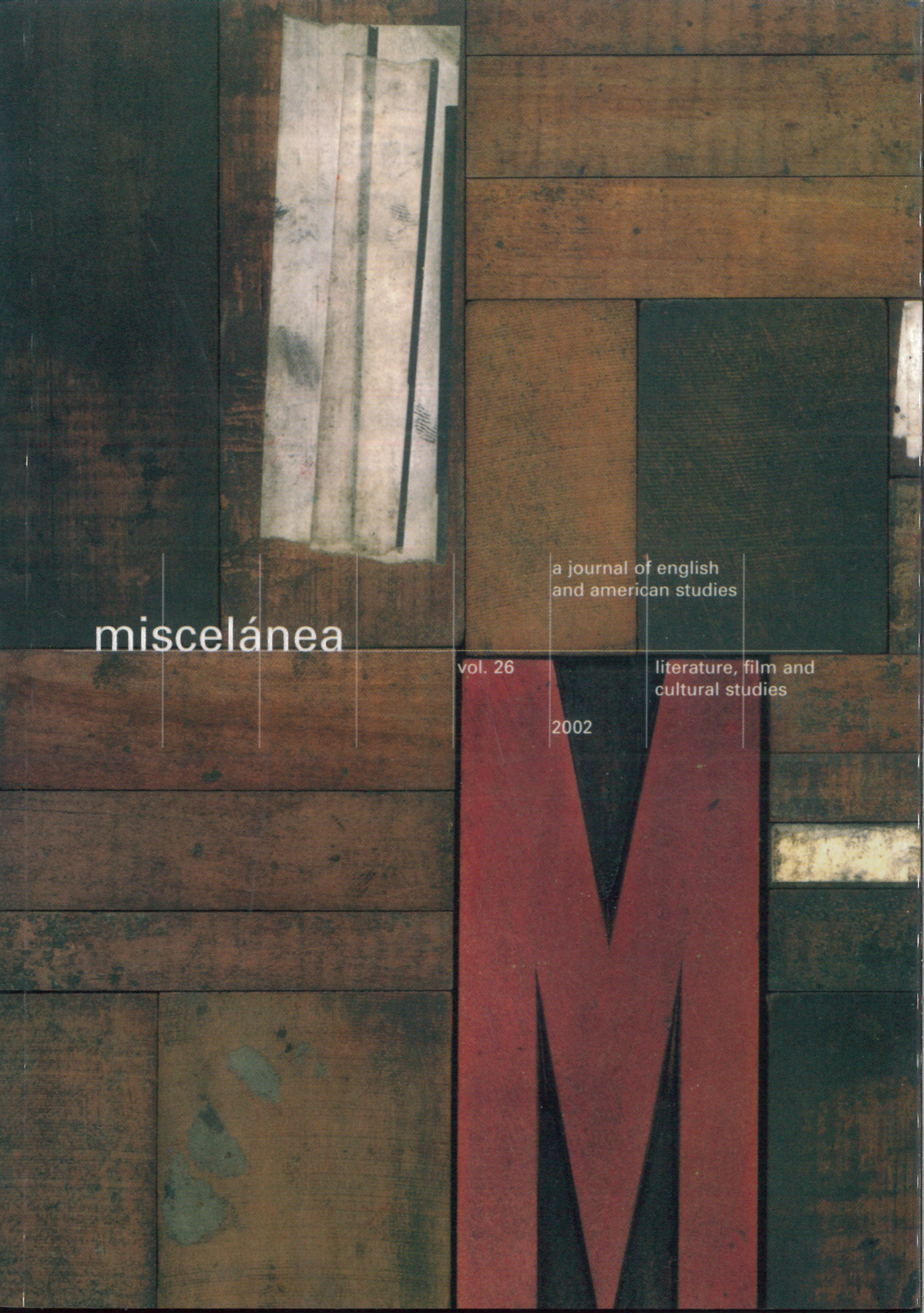Serial Murder, Serial Consummerism: Bret Easton Ellis’s American Psycho (1991)
DOI:
https://doi.org/10.26754/ojs_misc/mj.200210237Palabras clave:
Bret Easton Ellis, American Psycho, Blank Fiction, Consumismo, Asesinos en serieResumen
Bret Easton Ellis es un autor representativo de la tendencia de "blank fiction", cuyas novelas tratan de la violencia, la indulgencia, el exceso sexual, la decadencia, el consumismo y el comercio. En American Psycho (1991), se centra en el fenómeno del asesino en serie. El objetivo de este artículo es analizar las formas en que la serialidad de los asesinatos en serie está vinculada a la serialidad proporcionada por diferentes formas de la cultura de masas: los programas de entrevistas, las noticias diarias, los anuncios, la música pop, las revistas y el consumismo en general. El interminable consumismo en serie de nuestra sociedad se refleja en los interminables asesinatos del protagonista. Llevado a sus últimas consecuencias, el consumismo lo invade todo, dehumanizando a las personas y difuminando la diferencia entre consumir objetos y consumir seres humanos. El concepto de serialidad está profundamente arraigado en nuestra cultura y es compartido por la ficción del asesino en serie, las producciones culturales de masas y el consumismo, lo que puede explicar la actual popularidad del tropo del asesino en serie.
Descargas
Citas
AMERIKA, Mark, and Alexander LAURENCE. 1994. “Interview with Bret Easton Ellis”: 1-3. http://www.altx.com/interviews/bret.easton.ellis.html (27 Oct. 2000).
ANNESLEY, James. 1998. Blank Fictions: Consumerism, Culture and the Contemporary American Novel. New York: St. Martin’s Press.
BAUDRILLARD, Jean. 1988a. America. Trans. Ch. Turner. London: Verso.
—. 1988b. “Simulacra and Simulations”. In Poster, Mark. (ed.). Jean Baudrillard: Selected Writings. Cambridge: Polity Press: 166-184.
—. 1988c. “Consumer Society”. In Poster, Mark. (ed.). Jean Baudrillard: Selected Writings. Cambridge: Polity Press: 29-56.
—. 1988d. “For a Critique of the Political Economy of the Sign”. In Poster, Mark. (ed.). Jean Baudrillard: Selected Writings. Cambridge: Polity Press: 57-97.
BLACK, Joel. 1991. The Aesthetics of Murder: A Study in Romantic Literature and Contemporary Culture. Baltimore: The Johns Hopkins U. P.
DYER, Richard. 1997. “Kill and Kill Again”. Sight and Sound 7 (September 1997): 14-17.
EDMUNDSON, Mark. 1997. Nightmare on Main Street: Angels, Sadomasochism, and the Culture of Gothic. Cambridge, Mass.: Harvard U.P.
ELLIS, Bret Easton. 1991. American Psycho. London: Picador.
ELLIS, John. 1992. “Broadcast TV as Cultural Form” In Visible Fictions. London: Routledge: 111-126.
FEATHERSTONE, Mike. 1991a. “The Body in Consumer Culture” In Featherstone, Mike, Mike Hepworth and Bryan S. Turner. (eds.). The Body: Social Process and Cultural Theory. London: Sage Publications: 170-196.
—. 1991b. Consumer Culture & Postmodernism. London: Sage Publications.
FISKE, John. 1994. Media Matters: Everyday Culture and Media Change. Minnesota: University of Minnesota Press.
FREESE, Peter. 1990. “Bret Easton Ellis, Less Than Zero: Entropy in the “MTV Novel”?” In Nischik, Reingard M. and Barbara Korte. (eds.). Modes of Narrative: Approaches to American, Canadian and British Fiction. Wurzburg : Konigshausen & Neumann: 68-87.
GOPALAN, Nisha. 2000. “American Psycho: The Story Behind the Film”. The Guardian. March 24:1-3
http://www.guardianunlimited.co.uk/Archive/Article/0,4273,3977532,00.html (27 Oct. 2000).
HARVEY, David. 1989. The Condition of Postmodernity: An Enquiry into the Origins of Cultural Change. Oxford: Basil Blackwell.
KAUFFMAN, Linda S. 1998. Bad Girls and Sick Boys: Fantasies in Contemporary Art and Culture. Berkeley: The University of California Press.
LASCH, Christopher. (1979) 1991. The Culture of Narcissism: American Life in An Age of Diminishing Expectations. New York: W. W. Norton and Company.
—. 1984. The Minimal Self: Psychic Survival in Troubled Times. New York: W. W. Norton and Company.
LEE, Martyn J. 1993. Consumer Culture Reborn: the Cultural Politics of Consumption. London and New York: Routledge.
LEHMAN, David. 1987. “Two Divine Decadents”. Newsweek. (September 7): 72.
MARX, Karl. (1867) 1976. Capital (vol. 1). Harmondsworth: Penguin.
ROSENBLATT, Roger. 1990. “Snuff This Book! Will Bret Easton Ellis Get Away with Murder?” New York Times Book Review. (December 16): 3, 16.
SELTZER, Mark. 1998. Serial Killers: Death and Life in America’s Wound Culture. New York: Routledge.
SIMMONS, Philip E. 1997. Deep Surfaces: Mass Culture and History in Postmodern American Fiction. Athens: The University of Georgia Press.
STEVICK, Philip. 1981. “Prolegomena to the Study of Fictional Dreck”. Alternative Pleasures: Postrealist Fiction and the Tradition. Urbana: Illinois U. P.: 122-142.
YOUNG, Elizabeth, and Graham Caveney. 1992. Shopping in Space: Essays on American “Blank Generation” Fiction. London: Serpent’s Tail.
YOUNG, Elizabeth. 1992a. “Children of Revolution: Fiction Takes to the Streets”. In Shopping in Space: Essays on American “Blank Generation” Fiction. London: Serpent’s Tail: 1-20.
—. 1992b. “The Beast in the Jungle, the Figure in the Carpet: Bret Easton Ellis’s American Psycho”. In Shopping in Space: Essays on American “Blank Generation” Fiction. London: Serpent’s Tail: 85-122.
Descargas
Publicado
Cómo citar
Número
Sección
Licencia

Esta obra está bajo una licencia internacional Creative Commons Atribución-NoComercial 4.0.


